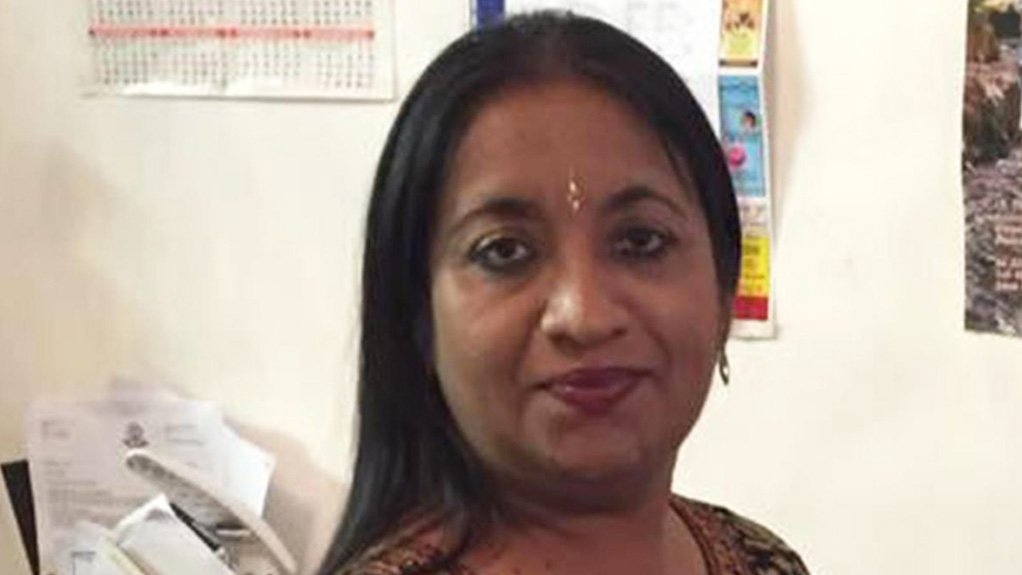Minister of Public Service and Administration Ayanda Dlodlo has launched a government unit aimed at rooting out corruption through encouraging and protecting whistleblowers in the public service.
Speaking on Monday during the launch of the unit, Dlodlo said the Public Administration Ethics, Integrity and Disciplinary Technical Assistance Unit would play a critical role in terms of government reaching its objectives as stated in the 2018 National Anti-Corruption Strategy (NACS).
The NACS was developed by President Cyril Ramaphosa shortly after he assumed the presidency, in an effort "to create a South Africa that is free from corruption, based on the values of integrity, transparency and accountability, respect for the rule of law, and zero tolerance for corruption".
Building on the key tenets of this vision, the Constitution and anti-corruption legal framework, Dlodlo said the unit would, "...contribute to the building of an ethical leadership, to professionalise the public administration, and to establish a culture of reporting and whistleblowing, while its main aim would be to institutionalise ethical conduct in public administration."
According to Dlodlo, the establishment of the unit was an important step in addressing corruption and to encourage workplace ethics as it highlighted to all public servants ensuring an ethical work environment was the responsibility of all employees, not just a select few.
"Section 195 of the Constitution requires the maintenance and promotion of a high level of professional ethics in the public administration. This not only speaks to the role of public servants performing their work in an efficient and ethical way, but also for those in leadership positions to act ethically at all times," she said.
She added that "any anti-corruption and professionalisation initiative must allow employees to blow the whistle on corruption and for the protection of whistleblowers".
"The death of [whistleblower] Ms Babita Deokaran highlights the imperative to increase awareness amongst employees on whistleblowing, to bolster early detection of corruption and criminal conduct.
"It is time that we revisit South Africa's whistleblowing regime and examine it vigorously, not only the legislation and its effectiveness, but also the lack of a single repository that can be used for research to strengthen the system and practice. We also need to interrogate the lack of cooperation across government to protect whistleblowers and we have to identify the bullies abusing their power to stop whistleblowing from happening," said Dlodlo.
The minister said the establishment of the unit also ensured that government professionalised the public service "by setting norms and standards on ethics, integrity and discipline management and to strengthen its oversight of ethics, integrity and discipline".
"It is my view, that the unit will be an integral cog in the anti-corruption machinery of government, and an important instrument to address corruption, fraud and unethical conduct in the public administration."
Dlodlo said the unit was one of many initiatives the government was using in its bid to stamp out corruption.
"Our government has put several programmes in place for this purpose, directed by a National Development Plan. This plan envisages a South Africa with reduced levels of corruption by 2030, to be achieved through the National Anti-Corruption Strategy that serves as South Africa's blue print to tackle corruption. The National Anti-Corruption Strategy is a contract between the whole of society and will focus on addressing the root causes of corruption so that the citizens of South Africa can see a real change," said Dlodlo.
She added that through the unit, the government envisioned an entity that would "successfully detect and investigate cases of corruption, with a view to prosecute, convict and incarcerate perpetrators".
Dlodlo pointed out that significant strides had already been made, amongst others, to address those public service employees involved in corrupt activities.
"Although they are only a handful of bad apples, we cannot allow this group to spoil the barrel... Working together as a collective within the Anti-Corruption Task Team, the unit was assisted to curb the tide on employees conducting business with the state.
"When the DPSA first started to monitor this in 2017, approximately 8 500 employees were listed as suppliers on the central supplier database. As the end of July 2021, this amount stands at 96, and is interrogated to ensure no contracts are concluded with these employees," said Dlodlo.
This newly established unit had no criminal jurisdiction or investigative mandate, but the minister said working "as part of the Anti-Corruption Task Team, it collectively contributes to the fight against corruption".
"This collective effort is expressed in the concluding of agreements and memorandums of understating (MOUs) with the Special Investigating Unit, Financial Intelligence Centre, South African Police Service, National Prosecuting Authority and Auditor-General to improve the sharing of information on corruption so as to improve detection and prevention efforts," said the minister.
EMAIL THIS ARTICLE SAVE THIS ARTICLE
To subscribe email subscriptions@creamermedia.co.za or click here
To advertise email advertising@creamermedia.co.za or click here











